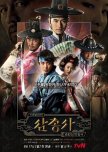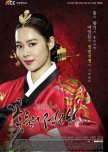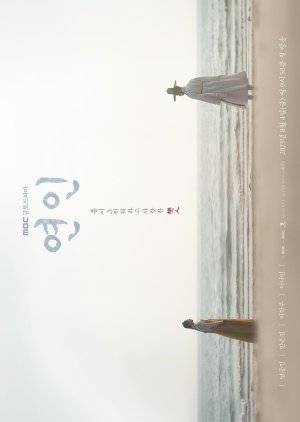
On the one hand, their settings are very different--Korean historical versus Chinese 20th century--but both tell epic tales over years of the characters' lives and interweave the maturing of the country with the maturing of the characters.
Both take a bit of time to grow attached to the characters but then you become SO sympathetic with them that the feels are intense.
Both have some romance but it is not the only ingredient (it is definitely featured more in My Dearest). Both are very well acted and nicely paced.
Both leave you feeling like you experienced something meaningful.
Both take a bit of time to grow attached to the characters but then you become SO sympathetic with them that the feels are intense.
Both have some romance but it is not the only ingredient (it is definitely featured more in My Dearest). Both are very well acted and nicely paced.
Both leave you feeling like you experienced something meaningful.



When romance is thrown in the turmoils of history.
Both dramas start like your typical romcom, boy meets girl, girl dislikes boy... (Granted, in My Dearest the FL is wearing a hanbok while in Youth of May, she's running around in jeans.)
But then, history with an H intervenes. For Youth of May, the dictature and the shadow of the Gwangju massacre are looming over the happiness of our protagonists. For My Dearest, it's the Qing invasion that sweeps them away. So, if you like a *somewhat* realistic period piece that isn't all political and that still has time for some cutesie lovey dovey stares between the lead, these dramas are for you.
In both you have the perfect balance of lightheartedness and Melo
Both dramas start like your typical romcom, boy meets girl, girl dislikes boy... (Granted, in My Dearest the FL is wearing a hanbok while in Youth of May, she's running around in jeans.)
But then, history with an H intervenes. For Youth of May, the dictature and the shadow of the Gwangju massacre are looming over the happiness of our protagonists. For My Dearest, it's the Qing invasion that sweeps them away. So, if you like a *somewhat* realistic period piece that isn't all political and that still has time for some cutesie lovey dovey stares between the lead, these dramas are for you.
In both you have the perfect balance of lightheartedness and Melo
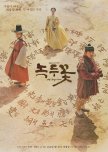
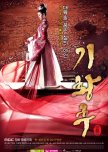
My Dearest is giving me the vibe of Empress Ki.
Both shows highlight strong lead characters and the main trope: men vs. powerful evil
In both stories, the couples are separated due to the internation's conflict as well.
Empress Ki has a lot of palace conflicts as well as swordfighting, and battles between countries. Also here we have a female protagonist who really stands up for herself and her comrades.
Both shows highlight strong lead characters and the main trope: men vs. powerful evil
In both stories, the couples are separated due to the internation's conflict as well.
Empress Ki has a lot of palace conflicts as well as swordfighting, and battles between countries. Also here we have a female protagonist who really stands up for herself and her comrades.

859 AD. The once-great Tang Dynasty is now declining. Numerous rebel groups have formed, the largest of which is the House of Flying Daggers, based in Feng Tian county. They steal from the rich and give to the poor, gaining the support of people. The local deputies have managed to kill their former leader, but the rebel group only becomes stronger, due to a mysterious new one. Jin and Liu, two police captains, are ordered to kill the new leader within ten days.




In his early years, Oda Nobunaga picked up the nickname of "The Fool of Owari" due to his bizarre behavior. He later married Nohime, but their relationship was not very good. Their marriage came about as a political marriage between hostile neighboring regions. Oda Nobunaga accepted Nohime as his wife with an arrogant, authoritative attitude. Meanwhile, Nohime has an unabashed attitude and easily clashes with her husband. They are like oil and water.
One day, Oda Nobunaga’s enemy Imagawa Yoshimoto attacks Owari with his vast army.
Oda Nobunaga is devastated by the overwhelming gap in military strength, but Nohime encourages Oda Nobunaga to not despair and fight against his rival. Oda Nobunaga and Nohime draw up a tactical plan to take on the much larger army. They soon make plans to unify the entire country, which has never been successfully done.
One day, Oda Nobunaga’s enemy Imagawa Yoshimoto attacks Owari with his vast army.
Oda Nobunaga is devastated by the overwhelming gap in military strength, but Nohime encourages Oda Nobunaga to not despair and fight against his rival. Oda Nobunaga and Nohime draw up a tactical plan to take on the much larger army. They soon make plans to unify the entire country, which has never been successfully done.

